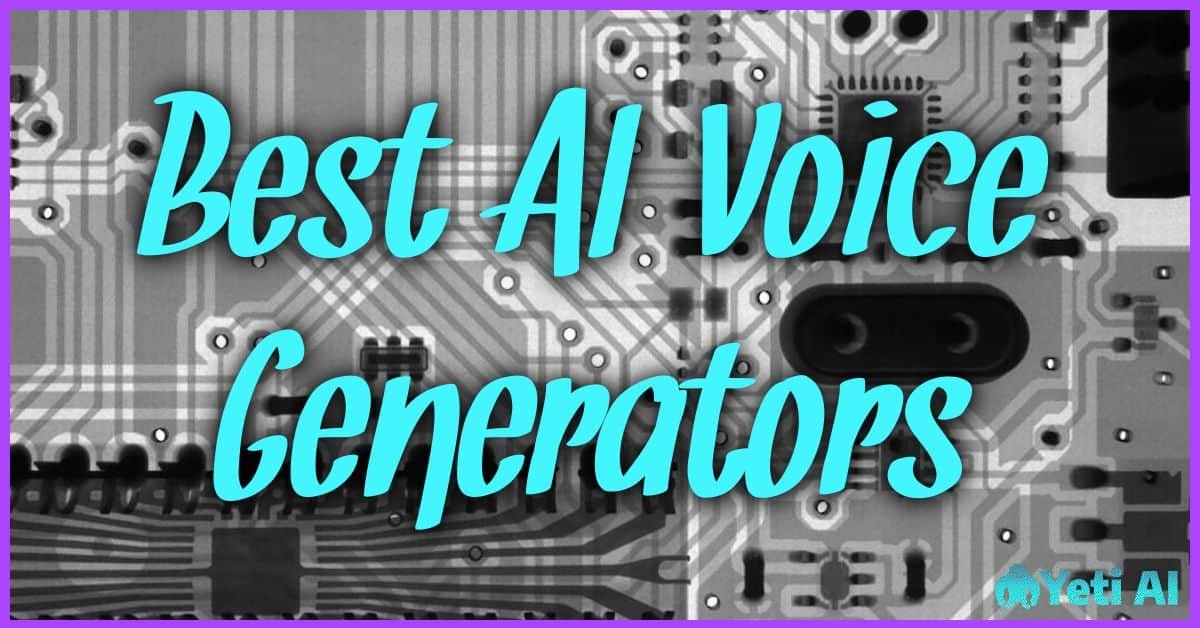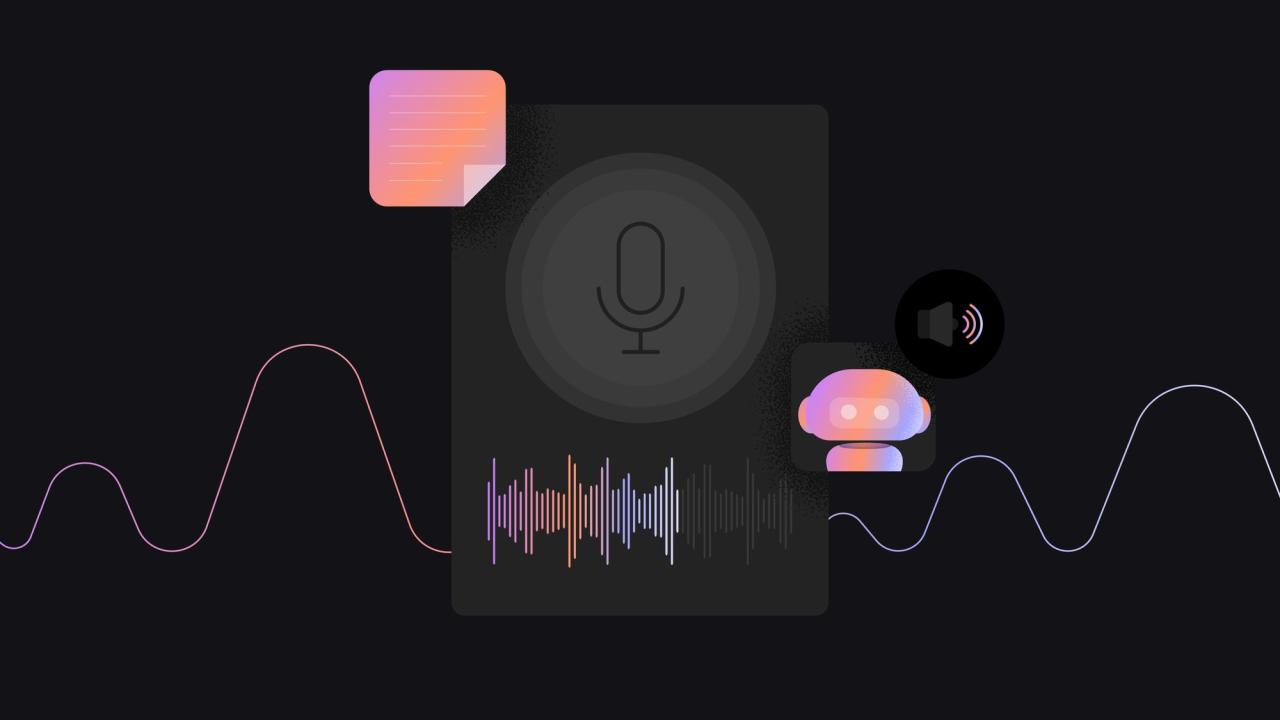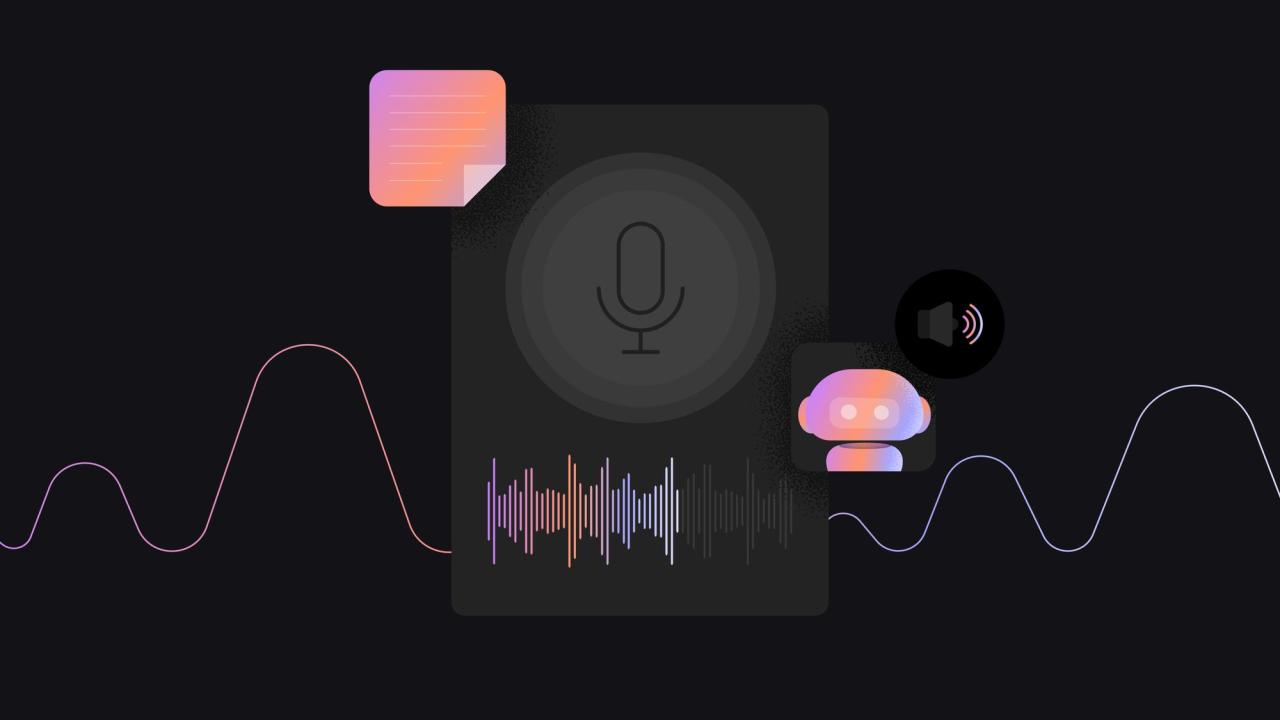Finding the right AI voice generator for podcasting can feel overwhelming, but it doesn’t have to be! This guide walks you through the essential features, factors to consider, and workflow integration to help you select the perfect AI voice for your podcast. We’ll explore different voice styles, address ethical considerations, and even show you some advanced customization techniques. Get ready to level up your podcast production!
Choosing the right AI voice generator significantly impacts your podcast’s quality and listener experience. From the naturalness of the voice to the ease of integration with your workflow, many factors come into play. This guide aims to clarify the process, enabling you to make an informed decision that aligns with your podcast’s needs and your budget.
Essential Features of AI Voice Generators for Podcasting
Choosing the right AI voice generator for your podcast hinges on understanding its core functionalities. A good AI voice generator isn’t just about converting text to speech; it’s about crafting a listening experience that’s both engaging and professional.
Natural-Sounding Voices and Intonation Control
The most crucial feature is the naturalness of the generated voice. High-quality generators use advanced neural networks to mimic human speech patterns, including subtle intonation and pauses. Control over intonation is vital for conveying emotion and emphasis, ensuring your podcast doesn’t sound monotonous. Seamless integration with popular audio editing software (like Audacity, Adobe Audition, or GarageBand) is also essential for efficient workflow.
Voice Styles and Parameter Adjustment
Variety is key. A good AI voice generator offers a range of voice styles, from warm and friendly to authoritative and formal. The ability to adjust parameters like speed, pitch, and emotion allows you to fine-tune the voice to match the tone and style of your podcast. This ensures consistency and helps create a unique brand identity.
Text-to-Speech Conversion, Language Support, and Unique Voice Profiles
Efficient text-to-speech (TTS) conversion is fundamental. The generator should accurately translate written text into speech, handling punctuation and formatting correctly. Support for multiple languages opens up your podcast to a wider audience. Creating unique voice profiles allows for consistent branding and a recognizable voice across your episodes.
Comparing Voice Generation Technologies
Different technologies power AI voice generators. Some use concatenative synthesis, stitching together pre-recorded speech snippets. Others employ neural text-to-speech (TTS), generating speech from scratch. Neural TTS generally produces more natural-sounding voices, but it can be more computationally intensive. Concatenative synthesis might be faster but can sound less natural, especially with complex sentences.
Picking the perfect AI voice for your podcast is key! You want something that sounds natural and fits your brand, right? But if you’re tech-savvy and want to build your own AI voice tools, check out some affordable full stack developer bootcamps with job placement – it could open doors to creating custom solutions. Then, once you’ve got your skills, you can really nail that perfect AI voice for your podcast.
Factors Influencing the Choice of an AI Voice Generator

Selecting the right AI voice generator requires careful consideration of several factors. Balancing features, budget, and ease of use is critical for a successful podcasting workflow.
Budget, Ease of Use, and Voice Quality
Budget constraints often dictate the options available. While some generators offer free plans with limitations, others charge subscription fees or per-minute usage. Ease of use is paramount; a complex interface can hinder productivity. The quality of the generated voices is the most important factor; it directly impacts the listener experience.
Picking the perfect AI voice generator for your podcast is key; you want something that sounds natural and fits your brand. But hey, if the tech world’s got you thinking about a career change, maybe check out some surgical tech programs near me – it’s a totally different field! Once you’ve decided on your career path, though, getting back to podcasting, remember to test a few AI voices before committing – find one that really enhances your audio experience.
Voice Naturalness, Tone Matching, and Licensing

The naturalness of the voice is crucial for avoiding a robotic or artificial sound. The ability to match the tone and style of your podcast is essential for maintaining consistency. Understanding the licensing terms is vital, particularly for commercial use; some generators have restrictions on how the generated voices can be used.
Comparison of Popular AI Voice Generators
Several popular AI voice generators are available, each with its strengths and weaknesses. The following table provides a comparison of some popular options. Note that pricing and features can change, so always check the provider’s website for the most up-to-date information.
| Provider | Pricing | Key Features | User Ratings (Example) |
|---|---|---|---|
| Provider A | Subscription-based (various tiers) | Wide range of voices, natural intonation, multiple languages, API access | 4.5 stars |
| Provider B | Pay-as-you-go | High-quality voices, excellent text-to-speech conversion, easy-to-use interface | 4.2 stars |
| Provider C | Free plan with limitations, paid plan available | Good selection of voices, basic editing tools, limited language support | 3.8 stars |
Workflow Integration and Post-Production Considerations
Integrating an AI voice generator into your podcast workflow requires a structured approach. Optimizing the generated audio for clarity and blending it seamlessly with other elements are crucial steps.
Picking the perfect AI voice for your podcast is key; you want something engaging and professional. But before you dive in, maybe check the weather – I just saw this news report about UK weather live: New snow and ice weather warnings issued as UK , and if you’re recording outside, that might impact your audio quality! Once you’ve got the weather sorted, get back to finding that perfect AI voice and create amazing podcast episodes.
Step-by-Step Workflow Integration
- Write your script.
- Choose your AI voice and adjust parameters (speed, pitch, emotion).
- Generate the audio using your chosen AI voice generator.
- Import the audio into your audio editing software.
- Edit and refine the audio (remove any artifacts, adjust levels).
- Mix the AI-generated voice with music, sound effects, and other audio elements.
- Export and master your podcast episode.
Optimizing Audio and Blending with Other Elements
To ensure clarity, normalize audio levels and remove any background noise or artifacts. When blending AI-generated voices with other elements, pay attention to volume levels and ensure a smooth transition. Use EQ and compression to enhance the overall sound quality.
Handling Audio Artifacts and Inconsistencies
Audio artifacts can sometimes occur, such as pops, clicks, or robotic sounds. These can usually be minimized through careful editing and audio processing techniques. Inconsistencies in voice quality can be addressed by ensuring consistent settings and parameters across different sections of your podcast.
Exploring Different Voice Styles and Applications
Different podcast genres benefit from different voice styles. The right voice can significantly enhance the listener experience and engagement.
Voice Styles for Various Podcast Genres
- Narrative Podcasts: Warm, engaging, and expressive voices that draw listeners into the story. Think of a seasoned storyteller.
- Interview Podcasts: Clear, neutral, and professional voices that allow the interviewee’s voice to take center stage.
- Educational Podcasts: Authoritative, informative, and perhaps slightly more formal voices that convey expertise and credibility.
- Comedy Podcasts: Playful, energetic, and perhaps even slightly quirky voices that match the humorous tone of the content.
Enhancing Listener Experience and Ethical Considerations, Finding the right AI voice generator for podcasting

Using diverse voice styles keeps listeners engaged and prevents monotony. However, ethical considerations arise regarding authenticity and transparency. It’s crucial to disclose the use of AI-generated voices to maintain listener trust.
Beneficial Podcast Scenarios
AI voice generators are particularly beneficial for creating voiceovers for intros and outros, producing multiple language versions of your podcast, and generating audio for podcasts with a large volume of content.
Advanced Techniques and Customization Options
Advanced techniques allow for a higher level of customization and control over the generated voices, enabling the creation of unique and memorable podcast experiences.
Customizing Voices and Achieving Naturalness
Many generators allow customization of voice parameters beyond basic settings. Fine-tuning prosody (intonation, stress, rhythm) and adjusting pauses can significantly improve naturalness. Experimentation and iterative refinement are key to achieving the desired level of naturalness and expressiveness.
Fine-Tuning Intonation and Emotion
Careful control over intonation and pitch can subtly convey emotions, such as excitement, sadness, or anger. This requires a good understanding of how intonation affects the perceived meaning of speech. Practicing and experimenting with different settings is essential to master this aspect.
Creating Consistent Voice Styles
Maintaining a consistent voice style across multiple episodes is crucial for brand recognition. This involves selecting a voice profile and adhering to consistent settings for parameters like speed, pitch, and intonation throughout the podcast series.
Conclusive Thoughts: Finding The Right AI Voice Generator For Podcasting

Ultimately, finding the perfect AI voice generator is about finding the right balance between features, budget, and ease of use. By understanding the key factors and integrating best practices into your workflow, you can leverage the power of AI to create a polished, professional, and engaging podcast. Remember to always prioritize ethical considerations and transparency in your use of AI-generated voices.
Now go create amazing audio!
Questions and Answers
What’s the difference between a cloud-based and a desktop AI voice generator?
Cloud-based generators require an internet connection but often offer more features and updates. Desktop versions work offline but might have limited functionality.
How much does a good AI voice generator cost?
Pricing varies greatly, from free options with limited features to subscription models costing tens or hundreds of dollars per month. Consider your budget and needs.
Can I use AI-generated voices for commercial purposes?
Always check the licensing terms. Some generators allow commercial use, while others restrict it or require additional fees.
How do I ensure my AI voice sounds natural?
Choose a high-quality generator with natural-sounding voices. Experiment with different voices and settings to find the best fit for your podcast.
